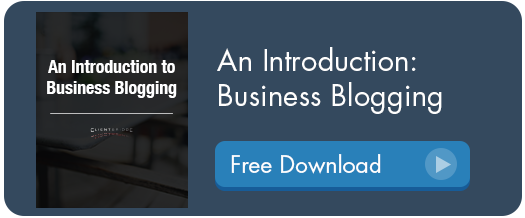When target customers are ready to buy, do they consider your company? This is a key question for any business. A reasonable resolution to this question is critical for BtoB companies who serve a defined target market. Most companies do not have a good handle on the answer because they don't know what they don't know. The first step in solving this quandary is to think customer and not your company. Let's start with several key facts we know about BtoB customers:
- Customers buy solutions to their problems and challenges and not products and services.
- Customers buy from companies that understand their problems, show expertise in the customers field and deliver quality. The best value for the investment.
- Customers today do their pre-buying research on the Web.
- The customer is like a sponge, they absorb every contact with your company which forms their overall perception of your company. Unfortunately they hardly ever give much feedback on their conclusions.
With these facts as a foundation, there are several questions a company must address if it is to grow sales in today's environment.
- When potential customers are in the pre-buying mode and doing research on the Web do they find your company?
- If they find your company, what perception do they form? Does it give them the feeling of dealing with an expert or just a sales pitch.
- When they have completed their research, what is the compelling reason for the customer to contact your company over the competition?
To fully address all of these questions requires a synergistic Inbound Marketing implementation. Let's start, however, with focusing on one key element of such an implementation, building your company's credibility as an expert in its respective market.
The quickest and proven way to establish expertise credibility on the Web is by effective blogging. The blog focuses on customer problems and respective business solutions, not your company's specific products or services. With frequent relevant blogging, the potential customer begins to look to your company for ideas and generic solutions. This continual demonstration of understanding the customer's problems builds confidence that your products and services are a valuable solution. This creates both a following of potential customers and establishes the customer's positive perception of your company's expertise. It provides a means for your customers to find you throught the search engines. It is also an excellent way for your company to realistically test your company's internal ability to effectively talk about the market and the customer problems you are addressing.
Surprisingly, when asked to give the topics and basis for blog writing, far too many companies do an inadequate job. Unfortunately this does not speak well of the company's ability to speak to their customer's problems and the compelling reason for potential customers to buy from them. Why is this important? If customers don't feel you understand their problems they will migrate to a vendor that they perceive does. To understand the impact of effective blogging let's look at the results of a HubSpot study of 4000 companies.
- Businesses that blogged just 16 to 20 times per month got 3 times more leads than those who didn't blog.
- Those who blogged at least 20 times per month saw nearly 4 times more leads than those who didn't blog.
- Those who blogged at least 20 times per month had 5 times more traffic than those who blogged less than 4 times per month.
- Businesses with over 200 total blog articles got 3.5 more leads than those with under 20 blog posts.
If your company is doing less than 16 blogs a month or not blogging at all a new blogging strategy is advisable.
For more strategic and tactical recommendations on how to blog for your business, you can download the ebook below.


